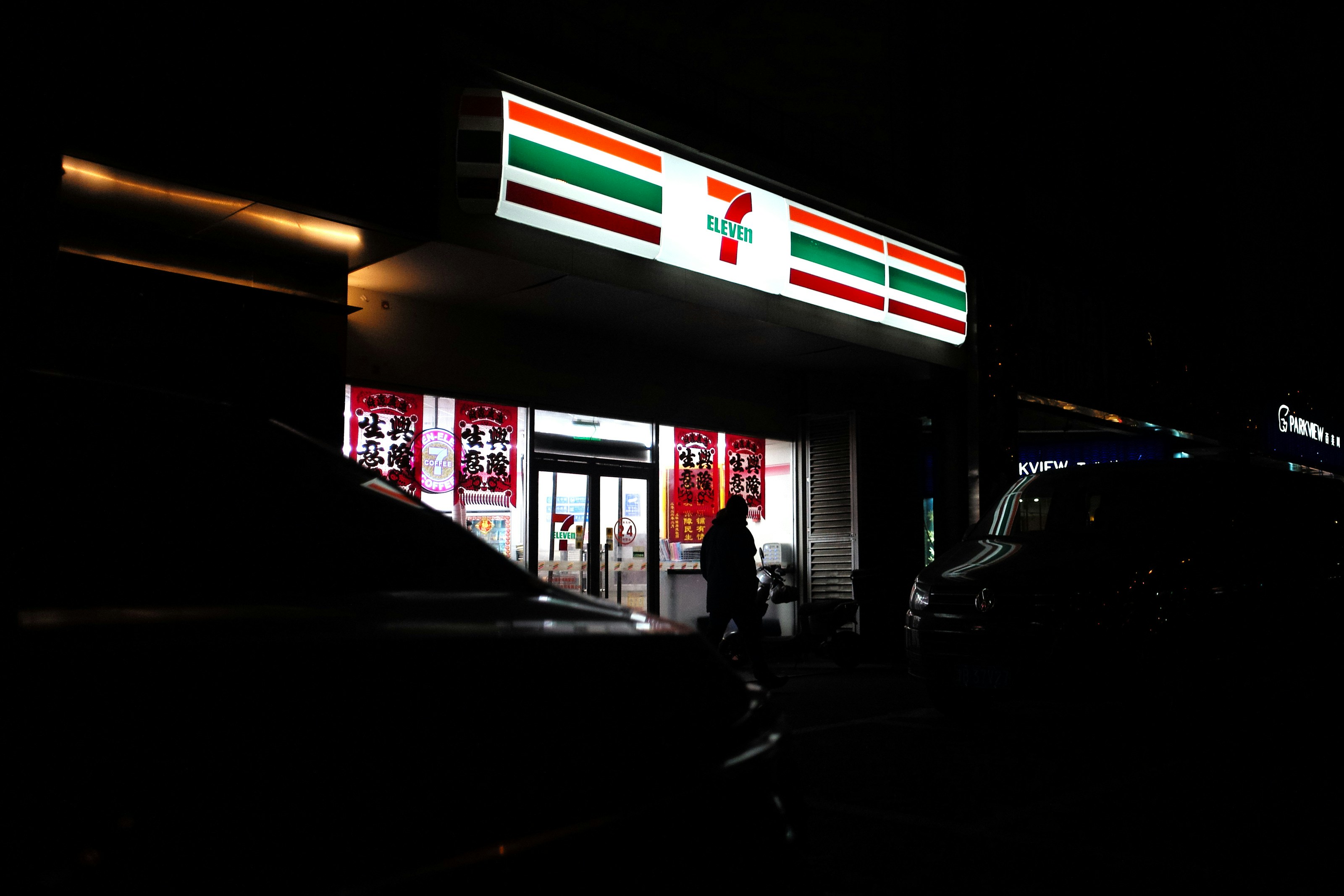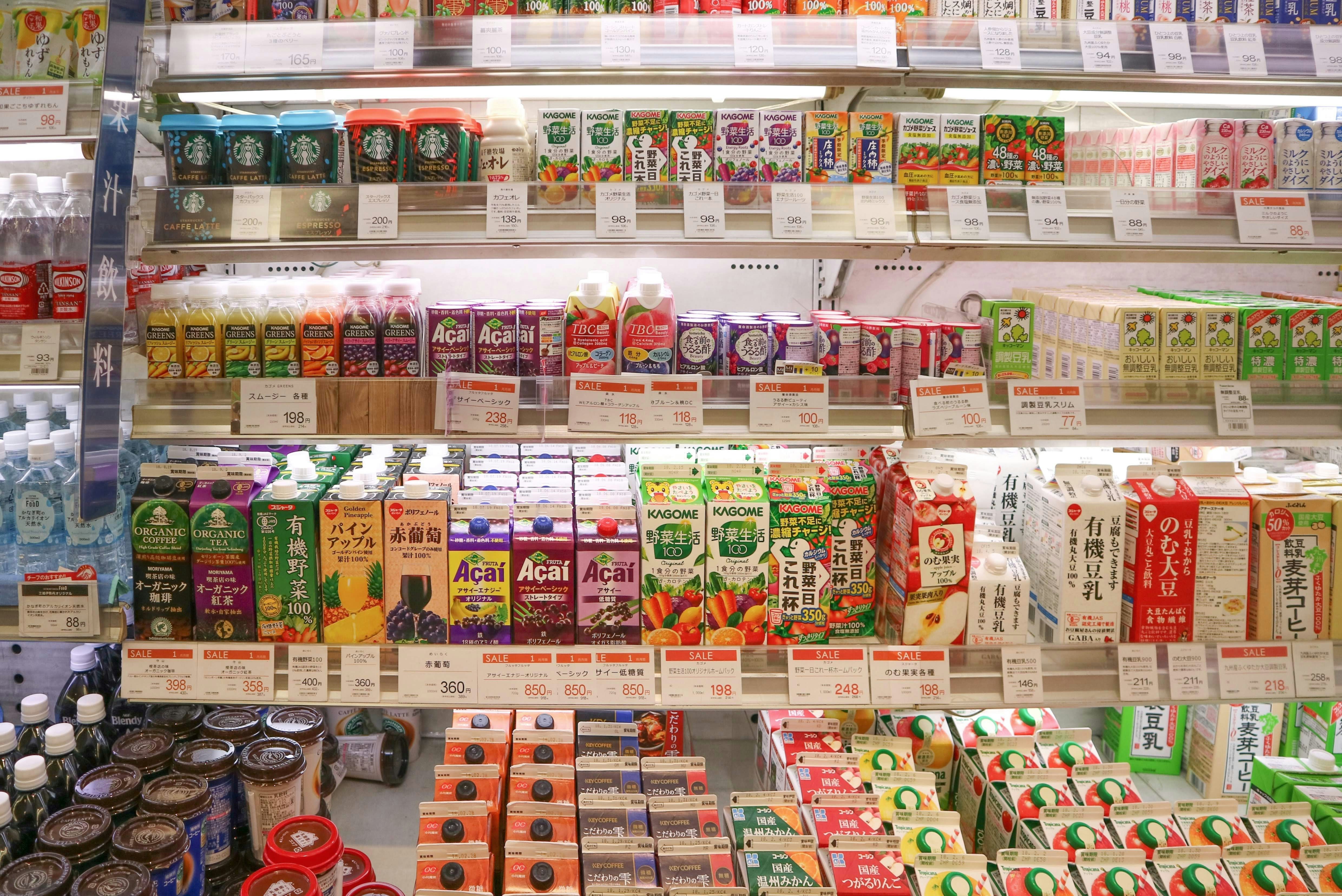
Tsukiji Outer Market: what to eat, best timing, and visitor tips
Practical Tsukiji Outer Market guide: what to eat, best times to visit, and visitor tips for Tokyo’s Jogai Shijo—foods, hours, queues, cash, and etiquette.

Japanese 7-Eleven stores are renowned for their extensive and unique product range, significantly different from those in other countries. These stores offer an impressive variety of fresh, ready-to-eat meals, including bento boxes, onigiri (rice balls), and sandwiches. These meals are convenient and crafted with a strong focus on quality and taste, reflecting the meticulous attention to detail characteristic of Japanese cuisine. Additionally, 7-Eleven in Japan frequently updates its inventory to include seasonal delights such as sakura-flavored sweets in spring or chestnut treats in autumn. Regional specialties are also a staple, offering products that reflect local culinary traditions and preferences. Exclusive items, ranging from unique flavors of snacks and beverages to premium desserts and innovative health foods, further set Japanese 7-Eleven stores apart, making them a must-visit for both locals and tourists.
Beyond their retail offerings, Japanese 7-Eleven stores provide many services that enhance their role in community life. These stores allow customers to pay utility bills, municipal taxes, and insurance premiums, and they feature ATMs that support various banking transactions. Ticket purchases for events, concerts, and travel are also facilitated through partnerships with ticketing services. Some 7-Eleven stores provide postal and courier services, allowing customers to send and receive packages conveniently. Moreover, many stores have microwaves, hot water dispensers for instant noodles, and seating areas where customers can enjoy their meals. These additional services make 7-Eleven a one-stop solution for various needs, solidifying its place as an indispensable part of everyday life in Japan.
The sheer density and 24/7 operation of 7-Eleven stores in Japan underscore their crucial role in the daily lives of Japanese people. With over 20,000 stores nationwide, 7-Eleven is often within walking distance, whether in bustling urban centers or quiet rural areas. This high density ensures that people can access essential goods and services easily and quickly. The round-the-clock operation caters to the needs of early risers, night owls, and those in need during emergencies, making 7-Eleven an incredibly reliable part of the community. This reliability is particularly valuable in a country prone to natural disasters, where 7-Eleven often serves as a lifeline by providing food, water, and other essentials during critical times.
7-Eleven's presence in Japan extends beyond convenience, having a significant economic impact by providing employment opportunities and contributing to local economies. The stores employ many people nationwide, from store managers to part-time workers, contributing to job creation and economic stability. Additionally, by sourcing many of their products locally, 7-Eleven supports small businesses and suppliers, fostering community economic growth. The competitive landscape created by 7-Eleven drives innovation within the retail sector, encouraging other convenience stores to improve their services and offerings, ultimately benefiting consumers.

While 7-Eleven is a global brand with stores in numerous countries, the adaptation of 7-Eleven in Japan is particularly noteworthy for its unique approach to product offerings and customer service. Japanese 7-Eleven stores are known for their meticulously curated product lines that cater to local tastes and preferences. This localization strategy involves offering high-quality, ready-to-eat meals, seasonal and regional specialties, and exclusive items that cannot be found in other countries. The emphasis on fresh food and daily essentials tailored to Japanese consumers sets these stores apart from their international counterparts, where the product focus may be more on packaged goods and general convenience items.
Moreover, the level of service and additional amenities provided by Japanese 7-Eleven stores is unparalleled. From bill payment and financial services to ticketing and postal services, the breadth of services offered ensures that these stores are deeply integrated into the daily lives of Japanese people. This comprehensive service model contrasts with the more limited offerings in 7-Eleven stores in other countries, highlighting the brand's ability to adapt and thrive by meeting specific local needs.
The success of 7-Eleven in Japan offers valuable lessons for other markets. One key takeaway is the importance of localization - understanding and catering to the local population's specific tastes, preferences, and needs. By continually innovating and adapting their product offerings, Japanese 7-Eleven stores have maintained a strong connection with their customers, fostering loyalty and high satisfaction rates. Additionally, integrating various services beyond traditional retail has positioned 7-Eleven as an essential community hub, illustrating the benefits of expanding the role of convenience stores to meet a broader range of consumer needs. These strategies, if implemented thoughtfully, could enhance the success of 7-Eleven in other markets, ensuring that the brand remains relevant and valued globally.

For many Japanese people, 7-Eleven is an integral part of their daily routine. Customers often share anecdotes about their frequent visits to the store for a quick breakfast, a midday snack, or a late-night meal. The convenience of having a 7-Eleven nearby, open 24/7, means that it fits seamlessly into their busy schedules. For instance, office workers might stop by a 7-Eleven on their way to work to pick up a freshly prepared bento box for lunch, while students might grab an onigiri and a coffee during their study breaks. The variety and quality of the food, combined with the accessibility and convenience, make 7-Eleven a favorite among various demographics, from young professionals to elderly residents.
Customer reviews and testimonials often highlight the positive experiences at Japanese 7-Eleven stores. Locals praise the high quality and freshness of the food items, noting that the store offers much more than just snacks and beverages. Tourists frequently express amazement at the vast array of products and services available, often stating that visiting a 7-Eleven in Japan is a must-do experience. Social media platforms are filled with posts about unique finds and pleasant surprises, from trying new seasonal products to utilizing various in-store services. Common praises include the cleanliness of the stores, the friendliness of the staff, and the overall efficiency and convenience of the shopping experience.
Looking ahead, 7-Eleven in Japan is poised to continue its trajectory of innovation and adaptation. One of the key trends is the incorporation of advanced technologies to enhance the customer experience. This includes using artificial intelligence and data analytics to optimize product selection and inventory management, ensuring that stores can better meet consumer demands. There is also a growing focus on sustainability, with initiatives to reduce plastic waste and promote eco-friendly practices. This might involve increased use of biodegradable packaging and more environmentally conscious product lines.
Despite its success, 7-Eleven in Japan faces several challenges and opportunities as it moves forward. One potential challenge is the changing consumer behavior, with more people turning to online shopping and delivery services. To address this, 7-Eleven is exploring ways to integrate digital platforms and expand its delivery options. Another challenge is maintaining the balance between innovation and tradition, ensuring that new offerings do not alienate loyal customers who appreciate the existing products and services. However, these challenges also present opportunities for growth and expansion. By leveraging technology and sustainability initiatives, 7-Eleven can enhance its appeal to a broader audience and continue to set the standard for convenience stores worldwide.
In conclusion, the cultural significance of 7-Eleven in Japan extends far beyond its role as a convenience store. It has become a vital part of everyday life, offering a wide range of products and services that cater to the diverse needs of Japanese consumers. From its historical roots and rapid evolution to its status as a cultural icon and community hub, 7-Eleven exemplifies the importance of localization and innovation in retail. As it continues to adapt and grow, 7-Eleven in Japan remains a testament to the potential of convenience stores to deeply integrate into and enhance the lives of those they serve.

Practical Tsukiji Outer Market guide: what to eat, best times to visit, and visitor tips for Tokyo’s Jogai Shijo—foods, hours, queues, cash, and etiquette.

Tokyo sushi guide for English speakers: learn restaurant types, read menus (kanji/kata/prices), use ticket machines, order politely, and handle allergies with c

Practical Osaka street-food guide to takoyaki and kushikatsu: where to eat in Dotonbori, Kuromon Market, Shinsekai; prices, etiquette, hours, and transport.